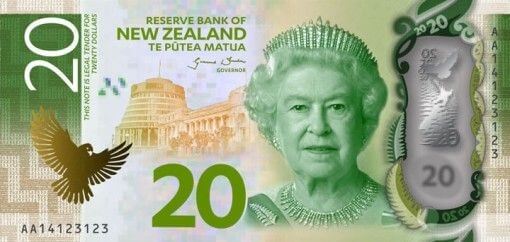NZD/USD Falls to Mid-0.6000s, Lowest Since May

NZD/USD Falls to Mid-0.6000s, Lowest Since May
Quick Look:
NZD/USD is at its lowest since mid-May, trading in the mid-0.6000s with a 0.35% daily decline. Increased USD demand due to rising US bond yields and a hawkish Fed, nearing a two-month peak. The NZD faces downward pressure from RBNZ’s early rate cut expectations and upcoming US PCE data.As of today, the NZD/USD pair trades in the mid-0.6000s, marking its lowest level since mid-May. The pair has experienced a daily decline of 0.35%, recently peaking at 0.6100$. The current support level stands at 0.6015$, with resistance at 0.6110$. This downtrend confirmed through its movement below the 50-day simple moving average (SMA), reflects significant weekly losses and has persisted for nearly three weeks.
USD Demand Rises Amid Fed’s Hawkish Outlook
The recent increase in demand for the US dollar has been notable, attracting fresh sellers on Friday. Rising US bond yields and a hawkish outlook from the Federal Reserve have bolstered this demand, pushing the USD to a two-month high. The release of the US Personal Consumption Expenditures (PCE) Price Index, a key upcoming event, could further influence demand. The US dollar has regained positive traction, nearing a two-month peak after a brief decline on Thursday. This uptick stems from the Federal Open Market Committee’s (FOMC) stance against rushing into rate cuts and an increase in US Treasury bond yields. Additionally, traders are repositioning themselves ahead of the US inflation data release.
NZD Under Pressure, RBNZ Rate Cut Expectations
The New Zealand dollar continues to face pressure from expectations of early rate cuts by the Reserve Bank of New Zealand (RBNZ). Despite a generally positive tone in equity markets, the risk-sensitive kiwi has not found support, encountering resistance on the downside. The anticipated release of the US PCE Price Index is set to play a crucial role in shaping near-term dynamics. Should the PCE come in lower than expected, it could strengthen the case for two rate cuts by the Fed this year, potentially weakening the USD. Conversely, an upward surprise could delay the timing of the first rate cut, providing a fresh boost to the USD.
NZD/USD Forecast: Bearish, Targets 0.6000$
The NZD/USD targets the 0.6000$ mark, with the 50-day exponential moving average (EMA50) providing bearish support. Should the pair fail to break above 0.6070$, there could be attempts at recovery on an intraday basis. The expected trading range for the near term lies between 0.6015$ and 0.6110$, with the overall trend remaining bearish. The market will closely watch the impact of upcoming economic data and central bank decisions, guiding future movements in the pair.
The post NZD/USD Falls to Mid-0.6000s, Lowest Since May appeared first on FinanceBrokerage.




